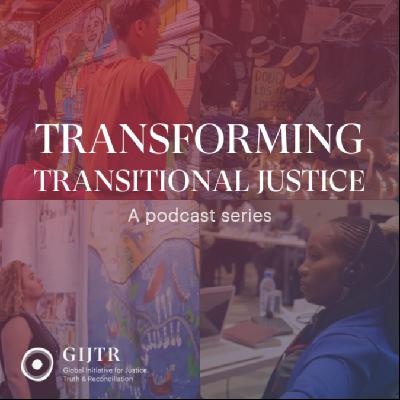Justice, Accountability and Violence Prevention
Update: 2024-07-02
Description
Welcome to the fifth episode of Transforming Transitional Justice, a podcast from the Global Initiative for Justice, Truth and Reconciliation, a flagship program of the International Coalition of Sites of Conscience, a global network of historic sites, museums and memory initiatives that support communities to confront painful pasts in order to establish more just and peaceful societies today.
What does justice look like for a survivor of human rights violations? How can civil society actors partner with victims to fight for and achieve accountability? Finally, what systems can be put in place to support violence prevention efforts, so that cycles of trauma do not keep repeating themselves?
To help us understand these questions through GIJTR’s specific lens, we’re delighted to welcome today two activists from Guinea and The Gambia in West Africa, two countries that have undergone tremendous pain at the hands of dictators or military rulers, and – to varying degrees – emerged from these periods with some traditional, formal justice and accountability mechanisms, as well as ones that address survivors’ long-lasting needs in more informal ways.
VISIT: www.gijtr.org to learn more
Guests on this episode include:
Asmaou Diallo, president of the association of victims and parents of the 28th of September Massacre in Guinea, or AVIPA.
Sawyatou Bangura, the Senior Human Rights Project Officer of ANEKED, The African Network against Extrajudicial Killings and Enforced Disappearances, Gambia chapter.
What does justice look like for a survivor of human rights violations? How can civil society actors partner with victims to fight for and achieve accountability? Finally, what systems can be put in place to support violence prevention efforts, so that cycles of trauma do not keep repeating themselves?
To help us understand these questions through GIJTR’s specific lens, we’re delighted to welcome today two activists from Guinea and The Gambia in West Africa, two countries that have undergone tremendous pain at the hands of dictators or military rulers, and – to varying degrees – emerged from these periods with some traditional, formal justice and accountability mechanisms, as well as ones that address survivors’ long-lasting needs in more informal ways.
VISIT: www.gijtr.org to learn more
Guests on this episode include:
Asmaou Diallo, president of the association of victims and parents of the 28th of September Massacre in Guinea, or AVIPA.
Sawyatou Bangura, the Senior Human Rights Project Officer of ANEKED, The African Network against Extrajudicial Killings and Enforced Disappearances, Gambia chapter.
Comments
In Channel






